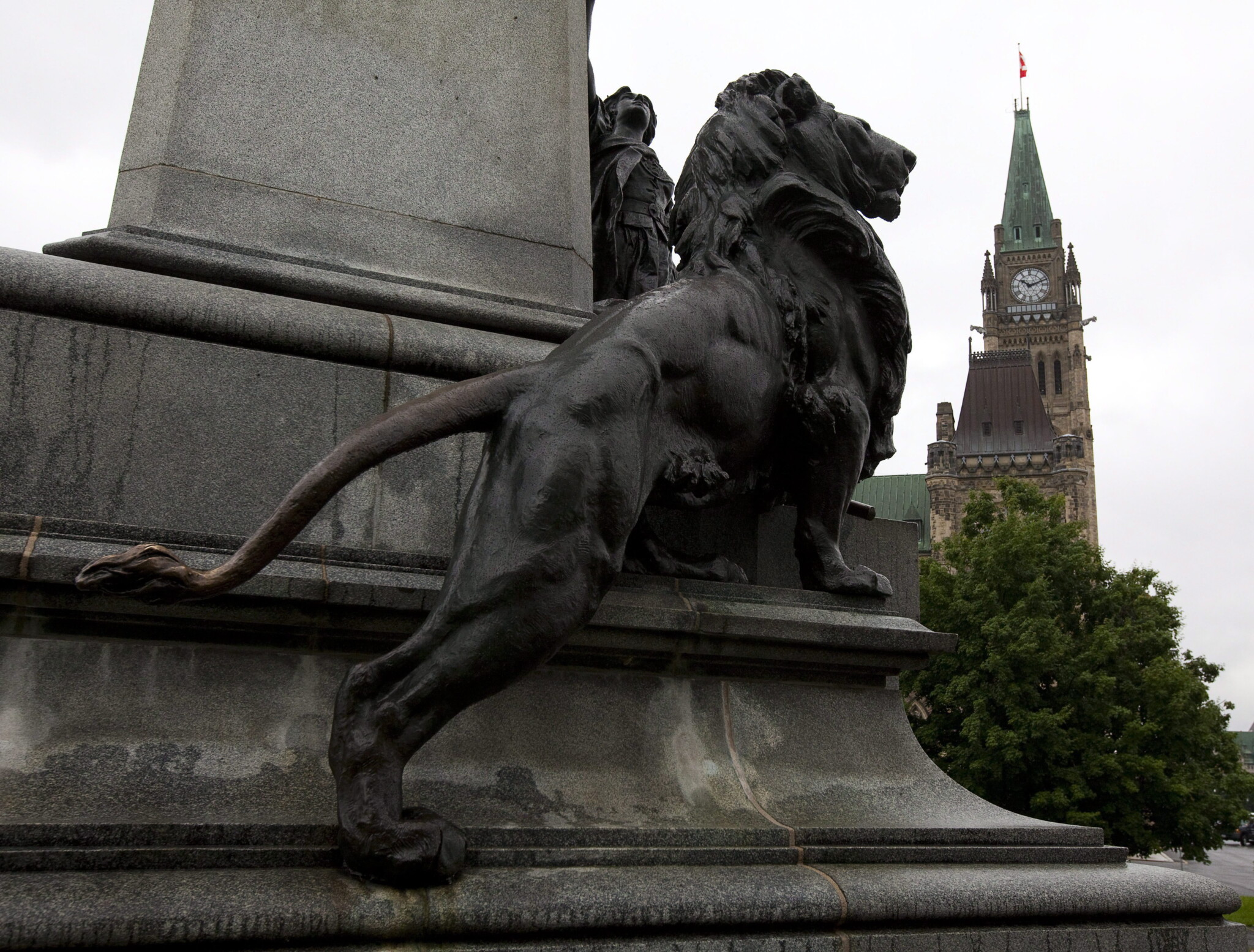Last week, Hub contributor Howard Anglin wrote in these pages about the state of liberalism in Canada and the ongoing erosion of the transcendent order and moral framework that had held its excesses in check. Today, Justice Peter D. Lauwers, a judge of the Court of Appeal for Ontario, offers a response, while Howard responds with a rebuttal of his own below.
Classical liberalism’s core principles are still standing strong
By Peter D. Lauwers, a judge of the Court of Appeal for Ontario. The views in this article are personal
I am afraid that Howard Anglin believes we are on the edge of the slough of despond, if not already caught in it. He has fallen into the same funk that led the late Alasdair MacIntyre to write After Virtue. Published in 1981, it is one of the great books of moral philosophy in the last century and many of us of a certain age have read it, no doubt including Mr. Anglin. The first two times I read it, I agreed with the book’s central argument. The third time, I changed my mind.
MacIntyre argued at length that in the West we have lost our moral consensus. We no longer agree on the “virtues,” so we are, he says, “after virtue.” This loss of a moral consensus leaves the law in a problematic state because the “crucial link between the virtues and law” is now missing. “Knowing how to apply the law is itself possible,” MacIntyre asserts, “only for someone who possesses the virtue of justice. To be just is to give each person what each deserves”, but that depends on the now contested “social presuppositions of the flourishing of the virtue of justice in a community.”
I resist MacIntyre’s conclusion because it simultaneously overstates the need for a moral consensus in society and it understates the level of consensus that actually exists. This viewpoint is taken up by Mr. Anglin. Let’s step back by turning to the commonplace details underpinning a clear and substantial societal consensus, one we should strive to maintain.
In our free and democratic society, the right to life and the right to liberty for individual persons are two core commitments. Take the right to life as an example. No one really disputes the core of the right to life. The disputes, serious and gut-wrenching as they might be, are on the boundaries of the right: for those at the beginning of life, abortion; and for those at the end of life, assisted suicide. The predicted slow creep of euthanasia is still on the boundary of the right to life. You can only appreciate that it is on that boundary if you step back and take in the overall scene.

And so it goes, I would argue, with the virtues, by which I mean the settled habits, dispositions, and practices, and the accepted moral values in our society. While much might be contested by philosophers, political theorists, theologians and activists, maybe even by lawyers, tribunals, and judges, much more is not contested by civil society.
Western society’s virtues, moral values, practices and human goods are found in the law. Indeed, life in our free and democratic society would not be possible without them. Consider some: keep your promises—contract law; be honest in your business dealings—commercial law; take care not to injure your neighbour—tort law; don’t pollute your neighbour’s property—nuisance and environmental law; take care of your family—family law; respect the property of others—property law, personal and real; take responsibility for your illegal acts—criminal law; respect your neighbour’s reputation—defamation law; the state must treat you fairly—administrative law.
More examples in which the law obviously instantiates moral values include the Criminal Code, which is chock-full of moral statements. These instances taken together exemplify some vision of the common good that serves to guide the state in securing the conditions for human flourishing. Consider the rights and freedoms set out in the text of the Constitution, including the Charter, and the foundational unwritten principles. These represent core liberal principles embodied in the justice system.
In each of these areas of law, and in others I have not mentioned, there are undoubtedly fields of contestation, some deep and difficult and worth contesting. But these usually engage matters of detail or application, not the core virtues and the moral values underpinning the engaged area of the law.
MacIntyre argued that we are sleepwalking into a dark age and that “our lack of consciousness constitutes part of our predicament.” But of course, that is precisely the virtue of articles like Mr. Anglin’s. They beat the drum that alerts us to our task.
I am not naïve. I agree with Mr. Anglin that Western society’s virtues, moral values, practices, and human goods are under constant challenge and must be defended. But we need not stand with the back foot in the slough of despond. The classical liberal story has much more in it to be recalled, explained, defended, and advanced.
It is not the centre but the limits that must hold
By Howard Anglin, a doctoral student at Oxford University
I am honoured that Mr. Justice Lauwers has been moved to respond to my musings. Lauwers is a gentleman, a model judge, and, as he makes clear in his response, an optimist. On this point, Lauwers might be surprised to learn, we are in happy agreement. The difference in our optimism is simply one of timelines. He is a short-term optimist, while I am a long-term one.
After the Late Bronze Age collapse, the Greeks who had maintained the thousand year-old Minoan civilisation ceased writing altogether for four centuries. But then, suddenly, they had Homer and Hesiod, and three hundred years after them, the Periclean Athens of Socrates, Plato, Aristotle, the great comics and tragedians, Phidias, and the Parthenon. Despond? Never! Patience? Certainly.
Digging deeper, our other apparent differences may also be a matter of perspective. We agree on the core elements of justice, including the longstanding (and now besieged) principles of criminal, tort, property, family, and administrative law, and that the virtues remain more or less where Aristotle, Aquinas, and MacIntyre found them. To call these “liberal” principles, however, goes too far: they are principles of justice, simpliciter; features of the law that long predate Locke, Mill, or Rawls.
As Lauwers says, our societies’ disagreements mostly “engage matters of detail or application” and, while large majorities in civil society may still broadly agree on the core elements of these virtues, they are now “contested by philosophers, political theorists, theologians and activists, maybe even by lawyers, tribunals, and judges.”
Lauwers may not be alarmed that “only” activists, tribunals, and, above all, judges contest traditional principles of justice and morality, but I am. These are the people who hold authority in our society and impose their skepticism on the rest of us. Neither am I consoled that it is only on the details and the application of these principles that our society disagrees: for the majority who are not legal philosophers and for practical purposes, the law exists only in its details and application.
If I can sum up our disagreement, it is not about hope or despond, nor is it about the core of the virtues or what John Finnis would call the “central cases” of the fundamental principles of justice. Neither liberalism nor post-liberalism can touch the true, the good, and the beautiful; they can only discredit them in the eyes of educated and influential people, who then apply their power to smash the civil consensus.
No, my concern is not for the centre: it is fixed. My worry is for the boundaries, and about a society governed from the increasingly distant and diffuse periphery by an authority that measures virtue by its distance from the centre. The centre must hold the limits, but it is the limits which hold us together, and it is the limits that we are losing, if they are not already lost.
Does law alone sufficiently uphold societal virtues, or is a shared moral consensus essential?
Are disagreements on legal 'details' less concerning than challenges to core virtues?
Is Western society facing a moral decline, or are its core principles resilient?










Comments (0)